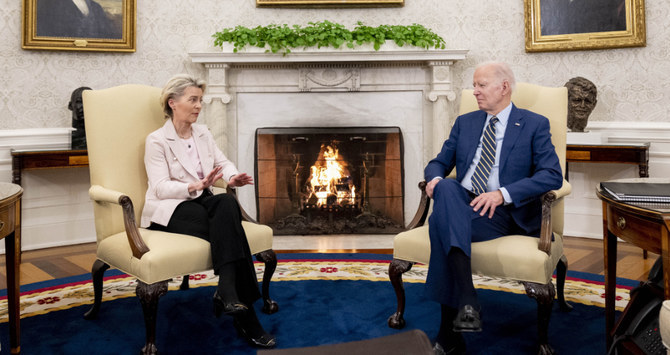
The campaign advertisements of US presidential candidate Joe Biden increasingly refer to the Obama administration, which is viewed by a large number of Americans as an era of normalcy. Barack Obama promised transformation, but he fell short of producing it, particularly in foreign affairs. His policies were successful in strengthening relations with Europe, but they also had their shortfalls and were mostly perceived as a continuation of previous American policies. Should Biden win November’s election, to have a successful presidency he should roll over Obama’s effective policies, but he should definitely also go beyond them. A Biden presidency should not be perceived as a third term for Obama, especially regarding the Middle East.
One successful aspect of Obama’s presidency was his commitment to multilateralism. The Paris agreement to manage climate change was an example of Obama’s successful multilateral approach. He was a highly popular president in Europe and Biden should focus on rebuilding such strong transatlantic relations. If he becomes president, Biden should also take an active role in world affairs and reverse the retrenchment that Obama started. A Chicago Council on Global Affairs poll late last year showed that 69 percent of Americans advocate the US taking an active role in world affairs, while 74 percent support US military alliances. The US needs the support of its allies, particularly those in Europe, to face geopolitical challenges. If elected, Biden would face numerous challenges in Europe, China, North Korea and South America, but mainly in the Middle East.
Regarding this region, Biden should aim to rectify Obama’s shortcomings. The former president adopted a light footprint strategy and relied on diplomacy, but this approach increased tension and instability. To start with, the early withdrawal from Iraq squandered the gains of the troop surge of 2007 by allowing Iran to increase its grip on the country and persecute its Sunni leadership. Terrorist organizations like Daesh flourished as a response to Sunni grievances.
On the issue of Palestine, although Obama started his first term with the intention of offering both the Palestinians and the Israelis an equitable peace, he was not able to enforce a two-state solution on the Netanyahu government. He retreated under pressure from the pro-Israel lobby and the support it had in Congress. In fact, Israeli Prime Minister Benjamin Netanyahu successfully bullied Obama and was even able to garner a standing ovation for his criticism of the president in Congress.
In the Middle East, Biden should aim to rectify Obama’s shortcomings.
Dr. Dania Koleilat Khati
As for Iran, the nuclear deal was counterproductive in terms of its goal of stabilizing the region. The deal buttressed Iran and, as a reaction, it created a sense of abandonment and anxiety on the Gulf side. The Saudis felt betrayed by their long-term ally, which did not even consult with them while negotiating with Iran. To show assertiveness, internally as well as to its foes, Saudi Arabia executed dissident Shiite cleric Nimr Al-Nimr in January 2016 after he was convicted of terrorism charges. This led to attacks on Saudi diplomatic missions in Iran, resulting in the severing of diplomatic relations between the two countries. Therefore, the deal did not lead to a detente but to increased tensions.
On top of that, Obama had a very hands-off approach with regards to Syria. In his famous interview with The Atlantic, he said the Assad regime was not a direct threat to US national security, so he did not want to interfere. The American retrenchment and Obama’s hesitation, as well his retraction of what he called “red lines” regarding Bashar Assad’s use of chemical weapons, were viewed as an open invitation for Russia to fill the void, which complicated the crisis in Syria. The country became a battleground for regional competition, leaving the bill to be paid for by the Syrian people, who witnessed major atrocities and the worst waves of displacements since the Second World War.
For Biden, the Syrian crisis should be his No. 1 foreign policy priority. He would have to land a final blow on the weakened Assad regime, which is unable to consolidate its territories and that is bleeding due to the biting Caesar Act sanctions. Ending the war in Syria would greatly diminish Iran’s outreach in the Levant and help contain it as a regional problem, especially in Iraq, where the Islamic Republic is already losing the support of the Shiite population.
With a weaker regional outreach, Iran would have less leverage to negotiate with. Nevertheless, to have a sustainable deal with Tehran, the US should help it save face. Iran cannot be seen, in the eyes of the Iranian people, to have relinquished the “principles of the revolution.” Hence, a fair settlement between the Palestinians and the Israelis would end the legitimacy of Iran’s “exporting the revolution” narrative, as a key reason for doing so — bringing justice to the Palestinians — would have been served.
Biden would have a better chance of solving the Palestinian issue than Obama did. Public opinion is changing in the US and the nature of the pro-Israel lobby is evolving. More and more Americans, especially Democrats, favor a fair solution for both the Israelis and the Palestinians, instead of just unconditionally siding with Israel.
If the Syrian and Palestinian issues are solved, Biden would have the ground ready for a grand bargain with Iran — a deal that should be sealed in collaboration with Iran’s neighbors rather than behind their backs.
Dr. Dania Koleilat Khatib is a specialist in US-Arab relations with a focus on lobbying. She holds a PhD in politics from the University of Exeter and is an affiliated scholar with the Issam Fares Institute for Public Policy and International Affairs at the American University of Beirut.
Disclaimer: Views expressed by writers in this section are their own and do not necessarily reflect Arab News" point-of-view












